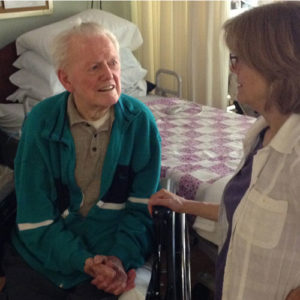A week ago, the ninety-something-year-old father of a good friend passed peacefully in his sleep. Four days later, the ninety-something-year old mother of another good friend left this world in the ER of a local hospital. Another friend’s father is on the cusp of hospice care. It’s my generation’s turn to bid good-bye.
 Elisabeth Kübler-Ross provides really useful insights in her seminal book entitled On Death and Dying: What The Dying Have to Teach Doctors, Nurses, Clergy, and Their Own Families. In a nutshell, patients consistently said that empathy from their loved ones proved immeasurably helpful when overcoming the shock of an unfavorable prognosis. They also wanted partners who’d walk hand-in-hand with them through their treatment and, in time, their passing.
Elisabeth Kübler-Ross provides really useful insights in her seminal book entitled On Death and Dying: What The Dying Have to Teach Doctors, Nurses, Clergy, and Their Own Families. In a nutshell, patients consistently said that empathy from their loved ones proved immeasurably helpful when overcoming the shock of an unfavorable prognosis. They also wanted partners who’d walk hand-in-hand with them through their treatment and, in time, their passing.
Kübler-Ross teaches us to be mindful of the different stages of grief. They are:
- Denial: Patients tend to think bad things happen to “the other guy.” Denial helps buffer the shock of the bad news while they muster the resources to face it.
- Anger: It’s perfectly normal to shake one’s fist at the heavens and shout, “Why me?” Yet it’s disconcerting for the family and caregivers whose own anxiety seeks to quell the disturbance. Providing space to allow that anger to release helps patients come to terms with reality and deal with it.
- Bargaining: This stage reflects a desire to postpone the inevitable. “If I do X, Y, and Z, can I get better, or at least give myself more time with loved ones?” It fosters hope that we might be able to take control of the situation.
- Depression: When the finality of one’s circumstances settles in, a deep sadness can overwhelm even the most optimistic of souls. Caregivers and family members may give in to their own discomfort and try to cheer the patient up. Yet that approach tends to fall on deaf ears. A compassionate response may involve simply “sitting in the mud” with your friend or loved one and being present.
- Acceptance: Given enough time and the right kind of support, patients can accept their fates without feeling angry or sinking into depression. It’s not a happy stage, per se. But it’s one in which there might be peace.
Folks generally don’t process these stages in a linear fashion. One can bounce around between denial, anger, bargaining, and depression for quite awhile before (hopefully) finding acceptance. And just as patients undergo this process, so, too, do their loved ones.
I lost my beloved father 3 years ago this week. He was ill for many years and spent his final months in a skilled nursing facility. I thought I’d fully processed my grief until I happened upon Joan Didion’s The Year of Magical Thinking. It describes her life during the first 12 months after her husband’s sudden death. Her “magical thinking” revolved around denial of the finality of his passing and persistent consideration of what the two of them had been doing together one year prior. I found myself weeping. It tapped the unexpended reservoir of my own grief.
In the wake of those emotions, I wrote the following poem.
When the Light Went Out
 I did not have a Year of Magical Thinking
I did not have a Year of Magical Thinking
when my father died.
I was not shaken to the core
when Death came.
I did not expect my father to return.
Death had been an unwelcome companion for years,
Robbing my father of mobility,
Denying him simple pleasures,
Taking his very breath away
All the while gnawing on his fragile frame.
I prayed for the battle to end.
I was there when he claimed a final wisp of air.
Yet all these months later,
I still weep and mourn the loss.
I miss the craftsman who forged my beginning
and had unwavering belief in my future.
I miss the engaging conversations,
The irritatingly wry sense of humor,
The 1000 watt smile,
And the gentle glow of silent affection.
On February 2, 2016, my father died
And the light went out
in that corner of my world.